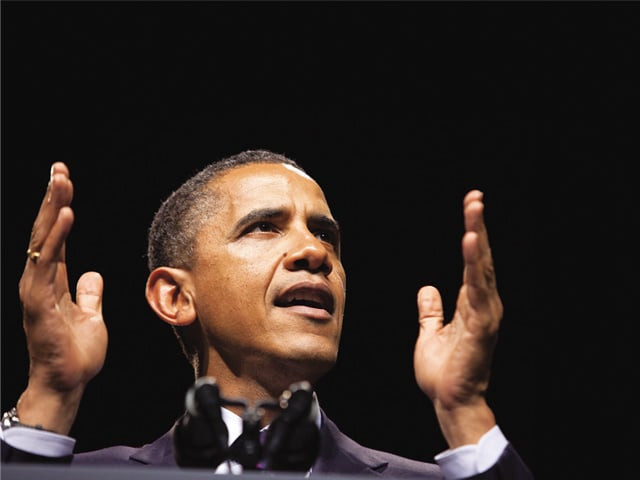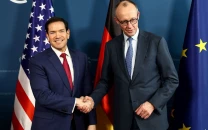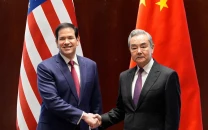Obama: What does he do now?
The president finds himself vilified by the right, castigated by the left and abandoned by the middle.

The president who muscled through Congress perhaps the most ambitious domestic agenda in a generation finds himself vilified by the right, castigated by the left and abandoned by the middle. He heads into the final stretch of the midterm campaign season facing likely repudiation, with voters preparing to give him a Congress that, even if Democrats maintain control, will almost certainly be less friendly to the president than the one he has spent the last two years mud wrestling.
While proud of his record, Obama has already begun thinking about what went wrong — and what he needs to do to change course for the next two years. He has spent what one aide called “a lot of time talking about Obama 2.0” with his new interim chief of staff, Pete Rouse, and his deputy chief of staff, Jim Messina. During an hour together, Obama told me he had no regrets about the broad direction of his presidency. But he did identify what he called “tactical lessons.” He let himself look too much like “the same old tax-and-spend liberal Democrat.” Perhaps he should not have proposed tax breaks as part of his stimulus and instead “let the Republicans insist on the tax cuts” so it could be seen as a bipartisan compromise.
Most of all, he has learned that, for all his anti-Washington rhetoric, he has to play by Washington rules if he wants to win in Washington. It is not enough to be supremely sure that he is right if no one else agrees with him. “Given how much stuff was coming at us,” Obama told me, “we probably spent much more time trying to get the policy right than trying to get the politics right. There is probably a perverse pride in my administration — and I take responsibility for this; this was blowing from the top — that we were going to do the right thing, even if short-term it was unpopular.”
What is striking about Obama’s self-diagnosis is that by his own rendering, the figure of inspiration from 2008 neglected the inspiration after his election. He didn’t stay connected to the people who put him in office in the first place. Instead, he simultaneously disappointed those who considered him the embodiment of a new progressive movement and those who expected him to reach across the aisle to usher in a post-partisan age.
When Obama secured the Democratic nomination in June 2008, he told an admiring crowd that someday “we will be able to look back and tell our children that this was the moment when we began to provide care for the sick and good jobs to the jobless; this was the moment when the rise of the oceans began to slow and our planet began to heal; this was the moment when we ended a war and secured our nation and restored our image as the last, best hope on earth.”
I read that line to Obama and asked how his high-flying rhetoric sounded in these days of low-flying governance. “It sounds ambitious,” he agreed. “But you know what? We’ve made progress on each of those fronts.”
But save the planet? If you promise to save the planet, might people think you would, you know, actually save the planet? He laughed, before shifting back to hope and inspiration. “I make no apologies for having set high expectations for myself and for the country, because I think we can meet those expectations,” he said. “Now, the one thing that I will say — which I anticipated and can be tough — is the fact that in a big, messy democracy like this, everything takes time. And we’re not a culture that’s built on patience.”
Last month, I made my way through the West Wing talking not only with Obama but also with nearly two dozen of his advisers — some of whom spoke with permission, others without — hoping to understand how the situation looks to them. The view from inside the administration starts with a basic mantra: Obama inherited the worst problems of any president in years. Or in generations. Or in American history. He prevented another Great Depression while putting in place the foundation for a more stable future. But it required him to do unpopular things that would inevitably cost him.
Yet many officials worry, they say, that the best days of the Obama presidency are behind them. They talk about whether it’s time to move on. Obama’s approval rating in surveys conducted by The New York Times and CBS News had fallen to 45 per cent last month from 62 per cent when he took office — just a point above where Clinton was before losing Congress in 1994 and three points above where Reagan was before the Republicans lost a couple dozen House seats in 1982. Still, Obama’s team takes pride that he has fulfilled three of the five major promises he laid out as pillars of his “new foundation” in an April 2009 speech at Georgetown University — health care, education reform and financial re-regulation. And they point to decisions to end the combat mission in Iraq while escalating the war in Afghanistan.
But it is possible to win the inside game and lose the outside game. In their darkest moments, White House aides wonder aloud whether it is even possible for a modern president to succeed, no matter how many bills he signs. Everything seems to conspire against the idea: an implacable opposition with little if any real interest in collaboration, a news media saturated with triviality and conflict, a culture that demands solutions yesterday, a societal cynicism that holds leadership in low regard. In this environment, some White House aides have increasingly concluded, it may be that every modern president is going to be, at best, average.
The easy answer is to blame the Republicans, and White House aides do that with exuberance. But they’re also looking at their own misjudgments, the hubris that led them to think they really could defy the laws of politics.
The biggest miscalculation in the minds of most Obama advisers was the assumption that he could bridge a polarized capital and forge genuinely bipartisan coalitions. “If anybody thought the Republicans were just going to roll over, we were just terribly mistaken,” former Sen. Tom Daschle, a mentor and an outside adviser to Obama, told me.
Gov Ed Rendell of Pennsylvania, though, is among the Democrats who grade Obama harshly for not being more nimble in the face of opposition. “B-plus, A-minus on substantive accomplishments,” he told me, “and a D-plus or C-minus on communication.” The health care legislation is “an incredible achievement” and the stimulus program was “absolutely, unqualifiedly, enormously successful,” in Rendell’s judgment, yet Obama allowed them to be tarnished by critics. “They lost the communications battle on both major initiatives, and they lost it early,” said Rendell, an ardent Hillary Clinton backer who later became an Obama supporter.
That’s a refrain heard inside the White House as well: It’s a communication problem. The first refuge of any politician in trouble is that it’s a communication problem, not a policy problem.
The policy criticism of Obama can be confusing and deeply contradictory — he is a liberal zealot, in the view of the right; a weak accommodationist, in the view of the left. He is an anti-capitalist socialist who is too cozy with Wall Street, a weak-on-defense apologist for America who adopted Bush’s unrelenting anti-terror tactics at the expense of civil liberties.
“When he talked about being a transformational president, it was about restoring the faith of the American people in our governing institutions,” says Ken Duberstein, the former Reagan White House chief of staff who voted for Obama in 2008. “What we now know is that that did not work. If anything, people are even more dubious about all of our institutions, especially government. ... Frankly I would settle these days — forget about transformational, how about a transactional president, somebody people could do business with? It seems there’s an ideological rigidity that the American people did not sense.”
The other side would like more ideological rigidity. Norman Solomon, a leading progressive activist and the president of the Institute for Public Accuracy, said Obama has “totally blown this great opportunity” to reinvent America by being more aggressive on issues like a public health care option. “It’s been so reflexive since he was elected, to just give ground and give ground,” Solomon told me.
Pummeled from both sides, Obama clearly seems frustrated and, at times, defensive. “Democrats just congenitally tend to see the glass as half empty,” Obama said at a fundraiser in Greenwich, Conn., last month. “If we get an historic health care bill passed — oh, well, the public option wasn’t there. If you get the financial reform bill passed — then, well, I don’t know about this particular derivatives rule, I’m not sure that I’m satisfied with that. And, gosh, we haven’t yet brought about world peace. I thought that was going to happen quicker.”
Rahm Emanuel, Obama’s first White House chief of staff who stepped down this month, told me that the cascading crises in Obama’s early days exacted a lasting toll. “The seeds of his political difficulty today were planted in taking those steps,” he said. White House officials largely agree they should not have let the health care process drag out while waiting for Republican support that would never come. “It’s not what people felt they sent Barack Obama to Washington to do, to be legislator in chief,” a top adviser told me. “It lent itself to the perception that he wasn’t doing anything on the economy.”
Still, for all the second-guessing, what you do not hear in the White House is much questioning of the basic elements of the programme — Obama aides, liberal and moderate alike, reject complaints from the right that the stimulus did not help the economy or that health care expands government too much, as well as complaints from the left that he should have pushed for a bigger stimulus package or held out for a public health care option. “We asked for more stimulus than we ended up with,” Larry Summers, the outgoing national economics adviser, told me. “But we fought as hard as we could, and I believe we got as much as Congress was ever going to give us at that time.”
Melody Barnes, the president’s domestic-policy adviser, says the biggest problem was that after eight years of Bush, Obama’s supporters were very eager to change everything right away. “The pent-up demand across every issue area — around science, around education, around health care, immigration, you name it — there was a lot of desire to finally get these things done,” she told me. “Every segment of the population had something that was very important to them that they really wanted to put over the finish line.”
Obama’s aides are more optimistic about 2012 than they are about 2010, believing the Tea Party will re-elect Obama by pulling the Republican nominee to the right. They doubt Sarah Palin will run and figure Mitt Romney cannot get the Republican nomination because he enacted his own health care program while governor of Massachusetts. If they had to guess today, some in the White House say that Obama will find himself running against Mike Huckabee, the former Arkansas governor.
Obama expressed optimism to me that he could make common cause with Republicans after the midterm elections in November. “It may be that regardless of what happens after this election, they feel more responsible,” he said, “either because they didn’t do as well as they anticipated, and so the strategy of just saying no to everything and sitting on the sidelines and throwing bombs didn’t work for them, or they did reasonably well, in which case the American people are going to be looking to them to offer serious proposals and work with me in a serious way.”
Even if such an alliance emerges, though, the next two years will be mostly about cementing what Obama did in his first two years — and defending it against challenges in Congress and the courts. As a senior adviser put it, “There’s going to be very little incentive for big things over the next two years unless there’s some sort of crisis.” Yet Obama and his aides still scorn the small-bore approach to reform that Clinton adopted after the 1994 midterm elections. Before he left, Emanuel told me: “I’m not of the view that you do nothing. I think you’ve got to have an agenda.”
But what sort of agenda? Not as sweeping and not as provocative, say some advisers. “It will have to be limited and focused on the things that are achievable and high priorities for the American people,” says Dick Durbin, the No. 2 Democrat in the Senate. Daschle said Obama would have to reach out to adversaries.
Rendell thinks otherwise. “Don’t care so much about bipartisanship if the Republicans continue to refuse to cooperate,” he advised. “Do what you have to do. Fight back.” At the same time, he said, stop moaning about what he inherited: “After the election, I’d say no more pointing back, no more blaming the Bush administration. It’s OK to do that during the campaign and then stop. But to do it as much as we do it, it sounds like a broken record. And after two years, you own it.”
Obama will own it for another two years, or six if he can find his way forward. As an author, Obama appreciates the rhythms of a tumultuous story. But who is the protagonist, really? At bottom, this president is still a mystery to many Americans. During the campaign, he sold himself — or the idea of himself — more than any particular policy, and voters filled in the lines as they chose. He was, as he said at the time, the ultimate Rorschach test.
Now the lines are being filled in further. With each choice Obama makes, he further defines himself for better or worse in Americans’ minds. He says he knows where he is going and is gathering momentum despite the hurdles ahead. As he told a group of visitors during the week last spring that Congress passed health care and his administration reached agreement on an arms-control treaty with Russia, “I start slow, but I finish strong.”
He will have to, if the history he is writing is to turn out the way he prefers.— NYT Syndication Services
Published in The Express Tribune, October 24th, 2010.



















COMMENTS
Comments are moderated and generally will be posted if they are on-topic and not abusive.
For more information, please see our Comments FAQ